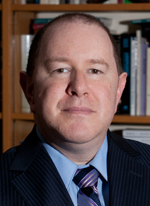Privacy, Law Enforcement, and National Security, Fourth Edition
Privacy, Law Enforcement, and National Security, Fourth Edition
Buy a new version of this textbook and receive access to the Connected eBook on Casebook Connect, including academic lifetime access to the online ebook with highlight, annotation, and search capabilities. Access also includes an outline tool and other helpful resources. Connected eBooks provide what you need most to be successful in your law school classes.
New to the 4th Edition:
- Tighter editing and shorter chapters
- New section about AI and algorithms in law enforcement
- New case on algorithmic decision-making: Loomis v. Wisconsin
- Discussion of post-Carpenter cases
- New Appendix A: Full text of the Electronic Communications Privacy Act
- New Appendix B: Full text of the Foreign Intelligence Surveillance Act
Product Information
Privacy, Law Enforcement, and National Security, Fourth Edition
Connected eBook + Paperback
Privacy, Law Enforcement, and National Security, Fourth Edition
Connected eBook (Digital Only)
Privacy, Law Enforcement, and National Security, Fourth Edition
LLPOD
Privacy, Law Enforcement, and National Security, Fourth Edition
Audiobook
Privacy, Law Enforcement, and National Security, Fourth Edition
eBook + Audiobook
Privacy, Law Enforcement, and National Security, Fourth Edition
eBook + Audiobook + Paperback

